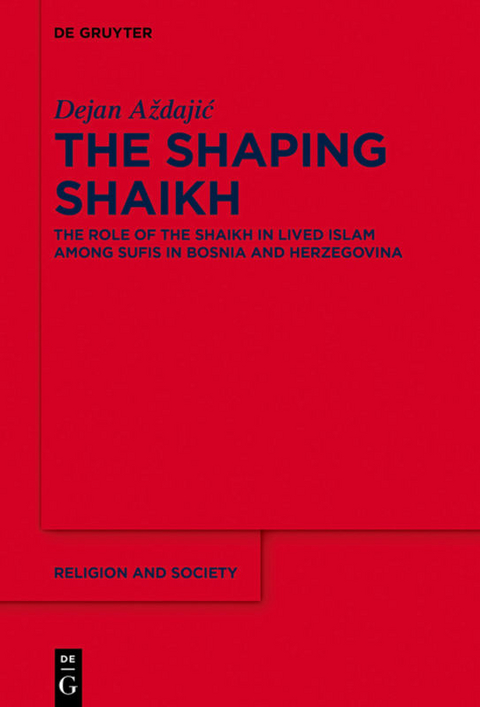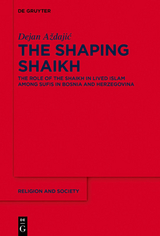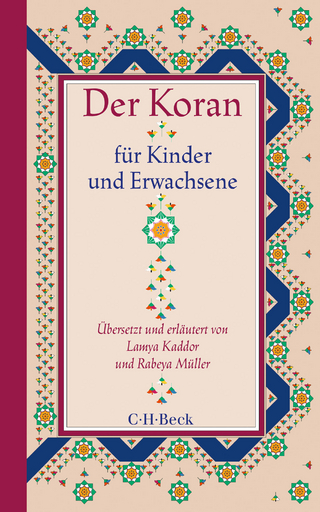The Shaping Shaikh
The Role of the Shaikh in Lived Islam among Sufis in Bosnia and Herzegovina
Seiten
The series Religion and Society (RS) contributes to the exploration of religions as social systems – both in Western and non-Western societies; in particular, it examines religions in their differentiation from, and intersection with, other cultural systems, such as art, economy, law and politics. Due attention is given to paradigmatic case or comparative studies that exhibit a clear theoretical orientation with the empirical and historical data of religion and such aspects of religion as ritual, the religious imagination, constructions of tradition, iconography, or media. In addition, the formation of religious communities, their construction of identity, and their relation to society and the wider public are key issues of this series.
Islam is more than a system of rigid doctrines and normative principles. It is a diverse mosaic of subjective, often contradictory interpretations and discrepant applications that prohibit a narrow, one-dimensional approach. This book argues that to uncover this complex reality and achieve a more accurate understanding of Islam as a lived religion, it is imperative to consider Islam from the point of view of human beings who practice their faith. Consequently, this book provides an important contribution through a detailed ethnographic study of two contemporary Sufi communities. Although both groups shared much in common, there was a fundamental, almost perplexing range of theological convictions and ritual implementations. This book explores the mechanism that accounts for such diversity, arguing for a direct correlation between Sufi multiformity and the agency of the spiritual leader, the Shaikh. Empirical research regarding the authority by which Shaikhs subjectively generate legitimate adaptations that shape the contours of religious belief are lacking. This study is significant, because it focuses on how leadership operates in Sufism, highlighting the primacy of the Shaikh in the selection and appropriation of inherited norms.
Islam is more than a system of rigid doctrines and normative principles. It is a diverse mosaic of subjective, often contradictory interpretations and discrepant applications that prohibit a narrow, one-dimensional approach. This book argues that to uncover this complex reality and achieve a more accurate understanding of Islam as a lived religion, it is imperative to consider Islam from the point of view of human beings who practice their faith. Consequently, this book provides an important contribution through a detailed ethnographic study of two contemporary Sufi communities. Although both groups shared much in common, there was a fundamental, almost perplexing range of theological convictions and ritual implementations. This book explores the mechanism that accounts for such diversity, arguing for a direct correlation between Sufi multiformity and the agency of the spiritual leader, the Shaikh. Empirical research regarding the authority by which Shaikhs subjectively generate legitimate adaptations that shape the contours of religious belief are lacking. This study is significant, because it focuses on how leadership operates in Sufism, highlighting the primacy of the Shaikh in the selection and appropriation of inherited norms.
Dejan Aždajić, Freie Theologische Hochschule Gießen.
Dejan Aždajić, Giessen School of Theology, Gießen, Germany.
| Erscheinungsdatum | 03.03.2020 |
|---|---|
| Reihe/Serie | Religion and Society ; 85 |
| Zusatzinfo | 15 col. ill., 6 b/w tbl. |
| Verlagsort | Berlin/Boston |
| Sprache | englisch |
| Maße | 155 x 230 mm |
| Gewicht | 549 g |
| Themenwelt | Geisteswissenschaften ► Religion / Theologie ► Islam |
| Schlagworte | Ethnografie • ethnography • Islam • Scheich • shaikh • Sufism • Sufismus |
| ISBN-10 | 3-11-067546-3 / 3110675463 |
| ISBN-13 | 978-3-11-067546-7 / 9783110675467 |
| Zustand | Neuware |
| Haben Sie eine Frage zum Produkt? |
Mehr entdecken
aus dem Bereich
aus dem Bereich




